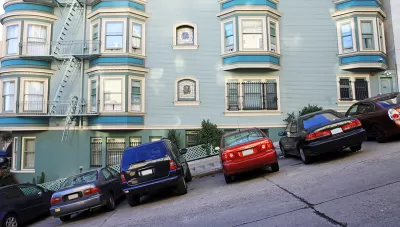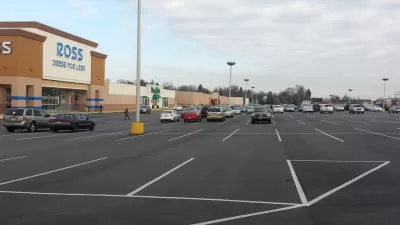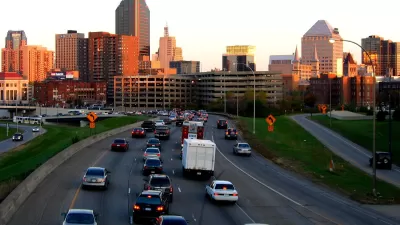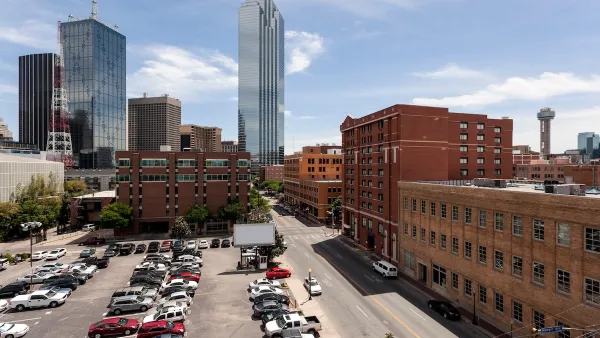Minimum parking requirements, argues Michael Manville, raise the cost of construction and eat up valuable urban real estate.

In a piece for The Atlantic, Michael Manville, associate Urban Planning professor at UCLA's Luskin School of Public Affairs, argues that minimum parking requirements "have been a disaster" for cities. Manville quotes Lewis Mumford, who in the 1960s decried the urban focus on parking as "the right to destroy the city." According to Manville, parking requirements have caused "needless damage," over decades, "with few people even noticing."
Cars, Manville writes, consume space—even when the car is not in motion or even present. "Cities designed for cars must set aside space: space to wait for cars, and space to hold them while they wait for their drivers to come back." Parking minimums take the cost of parking "and push it onto developers, hiding it in the cost of building." In Los Angeles, one parking spot can add as much as $50,000 to the cost of a building.
"Because parking requirements make driving less expensive and development more so, cities get more driving, less housing, and less of everything that makes urbanity worthwhile." Fulfilling local leaders' visions of "walkable downtowns and affordable units" requires eliminating the long-standing parking requirements that undermine them. "America’s disastrous experiment with parking requirements," writes Manville, "should end."
FULL STORY: How Parking Destroys Cities

Planetizen Federal Action Tracker
A weekly monitor of how Trump’s orders and actions are impacting planners and planning in America.

Map: Where Senate Republicans Want to Sell Your Public Lands
For public land advocates, the Senate Republicans’ proposal to sell millions of acres of public land in the West is “the biggest fight of their careers.”

Restaurant Patios Were a Pandemic Win — Why Were They so Hard to Keep?
Social distancing requirements and changes in travel patterns prompted cities to pilot new uses for street and sidewalk space. Then it got complicated.

Platform Pilsner: Vancouver Transit Agency Releases... a Beer?
TransLink will receive a portion of every sale of the four-pack.

Toronto Weighs Cheaper Transit, Parking Hikes for Major Events
Special event rates would take effect during large festivals, sports games and concerts to ‘discourage driving, manage congestion and free up space for transit.”

Berlin to Consider Car-Free Zone Larger Than Manhattan
The area bound by the 22-mile Ringbahn would still allow 12 uses of a private automobile per year per person, and several other exemptions.
Urban Design for Planners 1: Software Tools
This six-course series explores essential urban design concepts using open source software and equips planners with the tools they need to participate fully in the urban design process.
Planning for Universal Design
Learn the tools for implementing Universal Design in planning regulations.
Heyer Gruel & Associates PA
JM Goldson LLC
Custer County Colorado
City of Camden Redevelopment Agency
City of Astoria
Transportation Research & Education Center (TREC) at Portland State University
Camden Redevelopment Agency
City of Claremont
Municipality of Princeton (NJ)





























